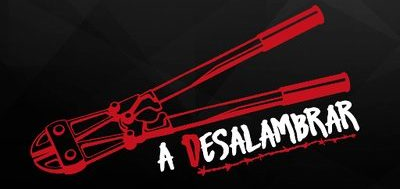 |
Basque Info from Belfast
Basque Info 27/10/10 podcast (audio)
Basque Info 27/10/10 news bulletin:
- Fourteen youth arrested in a new attack against the Pro-Independence Left
- Torture fought in the courts and on the streets
- Another political trial comes to an end
- Former South African president De Klerk ready to mediate
Fourteen Basque youth arrested in a new attack against the Pro-Independence Left
In the early hours of last Friday 300 Spanish policemen took part in the latest political operation against the Pro-Independence Left. Fourteen well-known and politically committed youth were arrested and six more are are being sought. All have been accused of being members of the national leadership of Segi (banned in the Spanish state since 2002).
One year ago 34 youth were also arrested and faced the same accusations. Around 20 police operations have been launched against the pro-independence youth movement at the local and national level over the past ten years and around 400 youth have been arrested -- many of them imprisoned and sentenced to up to eight years in jail for their political work.
Despite being a banned organization Segi doesn’t work underground. On the contrary they organise all sorts of public social, cultural and political activities and campaigns and have local groups in towns, neighbourhoods, schools and universities across the Basque Country including thousands of members.
The latest police operation has been denounced not just by the Pro-Independence Left but also by the signatories of the Gernika Agreement as an attack on the democratic process. The Gernika Agreement was recently signed by dozens of political parties, trade unions and social organizations (Segi among them) committed to the promotion of human, civil and political rights through exclusively political means.
These organizations announced protests against the arrests for today. Many other protests took place across the country over the weekend. The Dublin Irish Basque Solidarity Committee has also called a protest for today Wednesday 27th at 4.30pm at the GPO.
After several days under the incommunicado regime the arrested youth were sent to jail by Spanish judge Grande-Marlaska. Once in jail they had the opportunity to meet their own solicitors to tell them that some had been subjected to torture like beatings and suffocation with plastic bags and others had suffered constant psychological pressures, threats and sleep deprivation.
Torture fought in the courts and on the streets
A very unusual trial is taking place this week in Donostia/San Sebastian. Fifteen Spanish policemen, members of the infamous militarised Guardia Civil, are sitting on the accused benches facing charges of subjecting ETA suspects to torture.
This is one of the few cases that get through Spanish judicial process despite around 7,000 Basques reporting having been tortured over the past 30 years. The few policemen who have eventually been sentenced have all been pardoned by the state soon afterwards.
Almost three years ago two Basque militants were arrested in a mountainous area one hour south of Donostia/San Sebastian. Hours later one of them had to be taken to the hospital’s emergency room with broken ribs and numerous injuries to his body. He was in an extremely serious condition. His photos and medical report were leaked to the media which provoked immediate public outrage.
Both militants stated to the judge that they had been subjected to torture during the five days they were held incommunicado but nevertheless they were sent to jail and later sentenced to hundreds of years in prison for blowing up a Madrid airport terminal in 2007. The only evidence against them were their ‘confessions’ while held incommunicado.
Expectations were high yesterday at the Donostia/San Sebastian courts. Relatives were insulted and jostled by undercover policemen who filled the court room to support their colleagues. Protests were organised against torture and a national demonstration has been called for Saturday, supported by dozens of political parties, trade unions and social organizations.
Another political trial comes to an end
Last July the trial against Udalbiltza, the Basque national institution began its long process. Twenty local pro-independence town mayors and councillors were accused of being members of ETA solely because of their political work to promote, through Udalbiltza, nation-building and self-determination for the Basque Country.
Yesterday the trial came to an end with the accused generally feeling that they had won the case politically and also in terms of legal evidence. Nevertheless they face up to 22 years in jail.
The state prosecution was unable to prove any connection at all between the accused and ETA. The defendants said that they were proud of their work which they carried out, not “following ETA’s instructions” as was the accusation but pursuing the hopes and determination of the majority of Basques to promote a free Basque Country and a democratic solution to the conflict.
The accused had received once again the support of many different political parties, trade unions and social movements over the past few days at protests organised outside city and town halls across the country and were also supported by representatives of these organisations in court in Madrid.
Former South African president De Klerk ready to mediate
Over the past six months many debates, announcements, agreements, declarations, historical demonstrations and other important events have taken place in the Basque Country. International mediators of worlwide reputation have also showed their support for a democratic resolution to the conflict. Rumours of imminent important developments are strong.
It’s in this context that former South African president Frederick De Klerk welcomed ETA’s cease-fire announcement and told France Info last week that he is ready to act as a mediator should both parties, i.e. the Basque pro-Independence Left and the Spanish Government, request him to do so.
